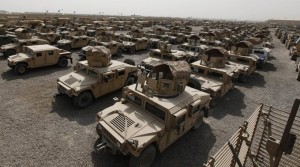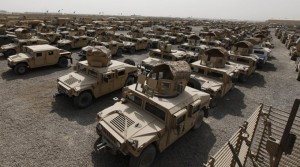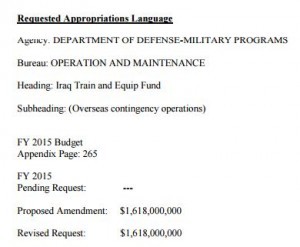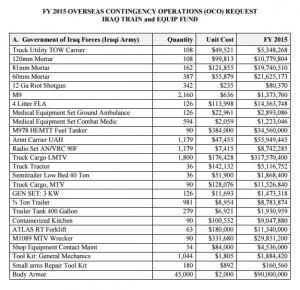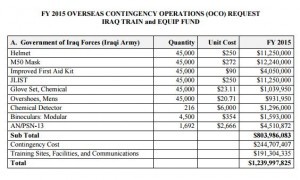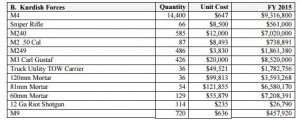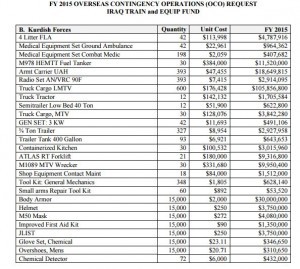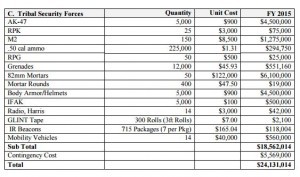The US Army failed to keep track of more than $1bn of weapons and equipment sent to Iraq in recent years, Amnesty International says, and some of the supplies could have ended up with Isis and Iranian-backed militias.
The rights group said it obtained a 2016 US government audit through a Freedom of Information request and found that the Department of Defense did not keep accurate records on the distribution and location of supplies sent to Iraq.
Patrick Wilcken, Amnesty’s researcher on international arms control, said: “This audit provides a worrying insight into the US Army’s flawed — and potentially dangerous system for controlling millions of dollars’ worth of arms transfers to a hugely volatile region.”
The Pentagon said the report was overblown and that small problems with the inventory systems have already been fixed.
Faulty accounting is a cause for concern in countries such as Iraq, where corruption is rampant.
Loose controls made it easier for equipment to end up in the hands of jihadist groups and Iranian-backed Shia paramilitary forces hostile to the US and accused of human rights violations. Amnesty also said it had regularly documented lax controls and monitoring of equipment in the Iraqi chain of command.
This was not the first time, Amnesty said, that lax monitoring had been exposed. A 2015 audit revealed similar problems and the defence department made a commitment to Congress in 2007 to keep stricter controls on weapons after a similar report was released.
“After all this time and all these warnings, the same problems keep reoccurring. This should be an urgent wake-up call for the US, and all countries supplying arms to Iraq, to urgently shore up checks and controls,” said Mr Wilcken.
The Iraq Train and Equip Fund, a key component of US-Iraqi co-operation, in 2015 gave $1.6bn of equipment to help Iraqi forces fight Isis. Amnesty said the supplies included tens of thousands of assault rifles, hundreds of mortar rounds and armoured Humvees — a vehicle used regularly by Isis as suicide car bombs.
Amnesty said it was calling on Washington to comply with the Leahy Law that bars US military aid to groups alleged to have committed “gross human rights violations” and to agree to the global Arms Trade Treaty that enforces rules on oversight of arms transfers that could fuel atrocities.
The US has sought to improve practices since it started supplying arms to Iraq and Afghanistan in the early years of the war, seeking to correct “some lapses in accountability” that it says occurred as a result of the speed at which the arms were initially supplied.
“We have a very good system of accounting for equipment and tracking it all the way but it’s never going to be perfect and there are localised inefficiencies,” said Eric Pahon, a Pentagon spokesman, adding the processes have since been streamlined and some minor inefficiencies fixed following the audit. “We’ve corrected most of these problems with the inventory systems,” he said.
The latest defence department report, according to Amnesty, showed incomplete record-keeping at arms depots in Kuwait and Iraq. Some entries were made manually, increasing the potential for mistakes. It also said incomplete records left those tracking equipment unable to determine their location.
Amnesty said the audit suggested there were no clear plans for how the department should track transfers sent to Iraq, even though it is required to check on equipment after delivery.
“Sending millions of dollars’ worth of arms into a black hole and hoping for the best is not a viable counter-terrorism strategy; it is just reckless,” said Mr Wilcken.
(Click to enlarge)
Equipment for Iraq:
Equipment for the Kurds:
Ask me anything
Explore related questions
